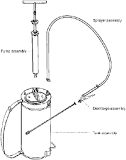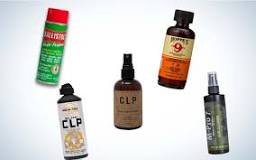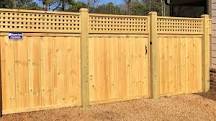So, you’re wondering if bug bombs will harm your beloved houseplants? The short answer is yes, they can potentially harm your plants. But let’s dive a bit deeper into why that is and what you can do about it.
What Are Bug Bombs?
Bug bombs, also known as foggers, are chemical insecticides designed to eliminate pests in your home. They release a fine mist of pesticide that settles on surfaces, including plants. While they can be effective at getting rid of unwanted critters, the chemicals in these products can be pretty harsh.
How Bug Bombs Affect Houseplants
Chemical Sensitivity
Plants are living organisms and can be sensitive to the chemicals found in bug bombs. These chemicals may cause leaf burn or even kill the plant if exposure is significant. If your houseplants are already stressed (think: low light or underwatering), they’re even more vulnerable to damage.
Residue Build-Up
After using a bug bomb, there’s often a residue left behind. This residue can coat your plants and block sunlight, which is crucial for photosynthesis. A lack of sunlight can weaken your plants over time, making them more susceptible to diseases and pests.
Inhalation Risks
While it’s not just about the plants—your furry friends and family members could be at risk too! If you’ve got pets or kids around, you might want to consider alternatives. Even if the bug bomb doesn’t directly harm your plants, the chemicals can linger in the air and affect everyone in the house.
Alternatives to Bug Bombs
If you’re worried about harming your plants but still need to tackle those pesky bugs, there are plenty of alternatives:
Natural Insecticides
Look for insecticidal soaps or neem oil. These options are less harmful to plants and can effectively manage pests without causing major damage.
Traps and Barriers
Sometimes, prevention is key! Use traps or physical barriers like sticky traps to catch bugs before they become a problem.
Regular Maintenance
Keep an eye on your plants and maintain a clean environment. Regularly check for signs of pests and remove any dead leaves or debris where bugs might hide.
Summary
In conclusion, while bug bombs can be effective against pests, they can indeed harm houseplants due to their harsh chemicals and potential residue. If you love your green friends as much as I do, it’s worth exploring safer alternatives for pest control that won’t jeopardize their health.
FAQ
Can I use bug bombs if I cover my plants?
Covering your plants might offer some protection, but it’s not foolproof. Chemicals can still seep through coverings or settle on leaves when you remove them. It’s safer to look for other pest control methods.
How long should I wait to reintroduce my plants after using a bug bomb?
It’s generally recommended to wait at least 24-48 hours after using a bug bomb before bringing your plants back into the treated area. Make sure to ventilate the space well before reintroducing them.
Are there any signs my plant has been harmed by a bug bomb?
Yes! Look for yellowing leaves, wilting, or brown tips as signs of chemical damage. If you notice these symptoms after using a bug bomb, it might be time to reassess your pest control strategy.
What should I do if my plant gets exposed to a bug bomb?
If you suspect exposure, rinse the plant leaves gently with water to remove any residue. Monitor it closely for signs of stress and provide optimal care to help it recover.







